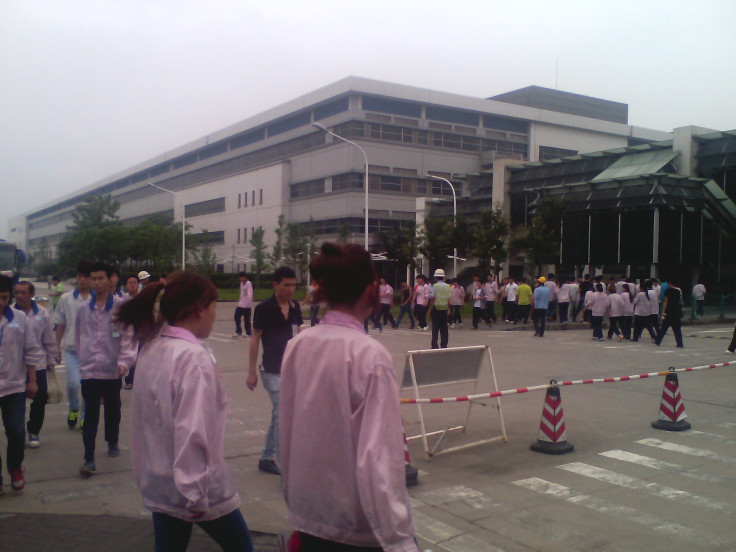Apple Supplier In China’s Poor Labor Practices Clash With US Tech Giant’s Promises To Lift Supply Chain Standards: Report

Apple says it is committed to improving working conditions across its global supply chain. But in at least one of its major suppliers in China, the U.S. company is failing to keep its word — and breaking Chinese employment laws in the process, according to an investigative report provided to International Business Times by a labor watchdog.
The California-based tech giant says it limits global suppliers to a 60-hour work week. However, most of the 70,000 employees at Pegatron Corp.’s Shanghai assembly plant — one of the makers of the iPhone — regularly toil in excess of that time limit, the investigation found. Overseen by the New York-based nonprofit China Labor Watch, the report relied on more than 1,200 pay stubs collected by workers.
Seventy-one percent of the pay stubs collected last October showed average work weeks that exceeded Apple’s self-imposed 60-hour limit, according to the report. China Labor Watch also said the factory violates China’s overtime regulations: Chinese law caps the number of maximum overtime hours to 36 per month, but just 1 percent of Pegatron workers’ monthly overtime hours fell below that limit. The pay stubs themselves do not account for mandatory 15-minute breaks before and after shifts, the report also found.
The investigation also calculated average wages at the factory: about $1.82 an hour, it said. That’s at least 2,500 times less than Apple CEO Tim Cook’s $10.3 million compensation last year, researchers calculated.

Kevin Slaten, program coordinator at China Labor Watch, said the findings cast doubt on Apple’s commitment to monitor its supply chain. Last year, the company said 92 percent of its suppliers complied with its 60-hour weekly limit. Slaten said the findings at Pegatron suggest either bad oversight or tacit approval of the factory’s practices.
“This isn’t a marginal supplier,” Slaten said. “This is a major, core-product Apple supplier now.”
The Taiwanese-based Pegatron produces about a quarter of iPhones worldwide, according to Nomura. Apple did not immediately respond to a request for comment.
Slaten also said the findings raise broader questions about the company’s business model. As the most profitable company in history, Apple could easily afford to improve pay and conditions for workers in its supply chain, he added.
This isn’t the first time Apple suppliers in China have come under fire over alleged poor labor conditions: Several years ago, the company faced intense criticism after a string of suicides by employees at Foxconn, another iPhone supplier. In December 2014, a BBC investigation of Pegatron factories in Shanghai documented widespread abuses. Last February, China Labor Watch released a similar report about Pegatron, highlighting low pay and extensive use of overtime.
China does not allow workers to form unions that are independent of the state-controlled labor federation.
© Copyright IBTimes 2025. All rights reserved.






















